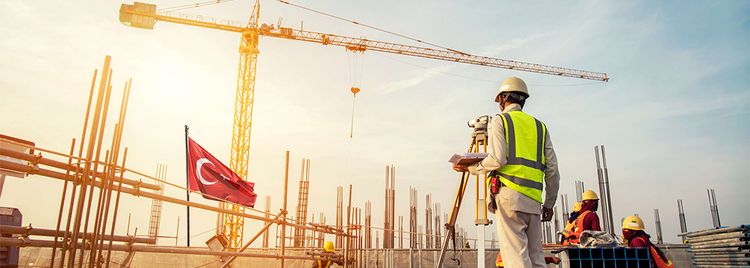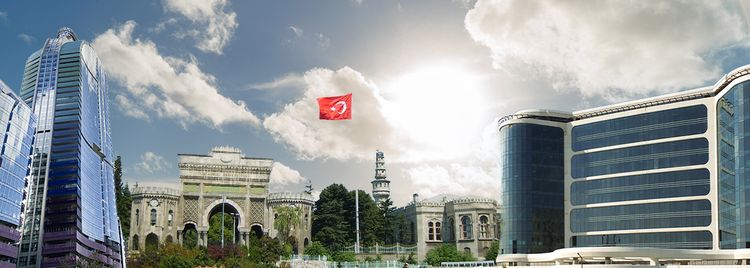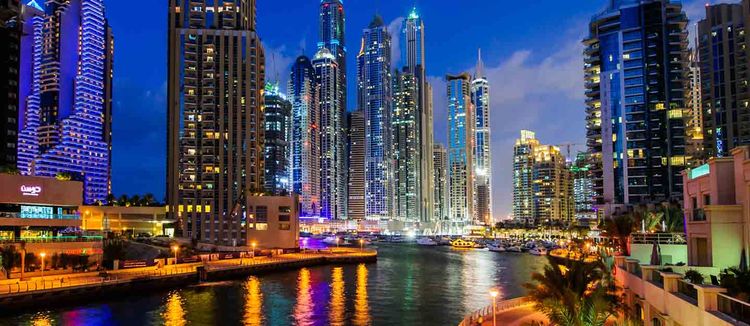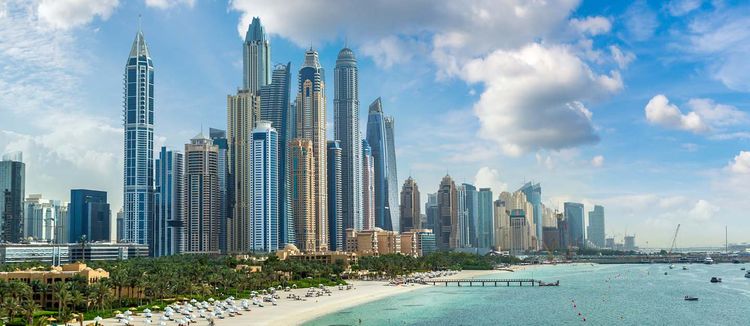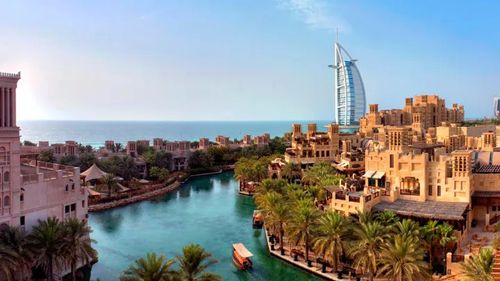Turkey is located at the crossroads between Europe and Asia making it an important land throughout world history, so far. Although the majority of the Turkish people are Muslims, Turkey is a secular country, according to the Turkish constitution, it also contains other religions such as Christianity. Turkey's distinctive and strategic location has made it home to many civilizations and empires over time. Its city of Troy was very famous in Greek literature, it was found on the Turkish coastline thousands of years ago. Turkey boasts stunning landscapes, rich history, prehistoric towns, magnificent remains, and impressive culture. According to this magnificent mixture of cultures, Turkey has presented to the world many significant characters through history in several fields who are famous worldwide due to their efficiency in the field they work in. Therefore, read the following article to know all about the life of the Top Famous Turkish Characters.
Mustafa Kemal Atatürk
The founding father of the Republic of Turkey, serving as its first president from 1923 until his death in 1938. He was a military commander in the Ottoman army during World War I, after which, he started a national revolution against the government of the Ottoman Empire and the Allied Powers, which he won to establish the Republic of Turkey. He is ideologically a secularist and nationalist, his policies and socio-political theories became known as Kemalism. Due to his accomplishments in terms of military and political matters which modernized Turkey into a secular, industrializing nation, he is regarded as one of the most important political leaders of the 20th century. Ataturk wrote books on military strategy, military education and training, politics, civic education, and mathematical engineering.
He kept a diary of his memories of Gallipoli, the Caucasus, and Carlsbad. He published a newspaper with his friends and wrote columns. All of his writings during his military and political career have been collected in a 30-volume collection of collected works. He was also interested in Turkish history, Turkish language, archaeology, political philosophy, philosophy of religion, and history of religions, and had books on these studies in his personal library. His government carried out a policy of Turkification, in order to create a homogeneous, unified and secular nation under the Turkish banner. During his reign, minorities in Turkey were asked to speak Turkish in public, but were allowed to maintain their own languages in private, in addition, non-Turkish toponyms were replaced, minorities were ordered to have a Turkish surname. He died on 10 November 1938 at Dolmabahçe Palace in Istanbul, at the age of 57.
Mesut Özil
He is a Turkish German former professional football player who played as an attacking midfielder. Ozil was known for his technical skills, creativity, passing skills, and wide vision. He was born on 15 October 1988 in Gelsenkirchen, Germany and raised there. He began his senior club career with Schalke 04, before signing with Werder Bremen in 2008. After his brilliance in the 2010 World Cup finals and winning the DFB-Pokal in his first season, he moved to Real Madrid in 2010, helped the club win a La Liga title, and ranked first in league assists for three seasons in row.
In 2013 he signed for Arsenal in a transfer worthed up to €50 million which made him a subject of a then-club record association football transfer. In England, he helped end Arsenal's nine-year trophy drought by winning three FA Cups and recording the second most assists ever (19) in a Premier League season. In 2021, He joined Fenerbahçe on a free transfer in 2021. And before retiring in 2023 he signed with İstanbul Başakşehir. Özil holds the record for the most German Player of the Year awards. He was the top assist provider at the 2010 FIFA World Cup and UEFA Euro 2012. He helped Germany twice reach the semi-final as he also helped it win the 2014 FIFA World Cup. He retired from international competition in 2018, alleging discrimination and disrespect by the German Football Association (DFB) and the German media.
Mehmet Oz
Known professionally as Dr. Oz. A dual citizen of the U.S. and Turkey who was born on June 11, 1960 in Wilmington, Delaware. He is an American television personality, author, and professor emeritus of cardiothoracic surgery at Columbia University. He became a professor of surgery at Columbia University, in 2001,then retired to professor emeritus in 2018. He was a regular guest on The Oprah Winfrey Show, making more than sixty appearances. He presented the Dr. Oz Show, which is a daily television program about medical matters and health, that was produced by Winfrey's Harpo Productions and Sony Pictures Television, and ran for 13 seasons. Oz promoted topics of alternative medicine, faith healing, and various paranormal beliefs, which made him earn criticism from a number of medical publications and physicians.
Oz was the first Muslim candidate to be nominated by either major party for the U.S. Senate, yet he lost the Senate election in Pennsylvania in 2022 to John Fetterman. Oz was influenced by many people, including the Swedish scientist, philosopher, theologian, and Christian mystic Emanuel Swedenborg. He recently wrote in the Spirituality and Health: "Once I came into contact with many of the writings, I began to understand Swedenborg's profound insights and how they directly applied to my life." He considers Swedenborg's concept that marriage should last forever, that everyone has a purpose for their existence in this world, and that God is love, in addition to Swedenborg's answers to the question "Why do bad things happen in the world?"
Elif Shafak
She is a Turkish-British novelist, essayist, public speaker, and activist. Shafak was born 25 October 1971 in Strasbourg, France. She writes in Turkish and English, and has published 19 works. She is best known for her novels: The Bastard of Istanbul, The Forty Rules of Love, and Three Daughters of Eve. Shafak has a PhD in political science which made it easy for her to be an essayist and contributor to several media outlets. She studied in the United States, and then became a professor in Studies and Races at the University of Arizona. She has advocated for women's rights, minority rights, and freedom of speech, whether in her country or outside. The Financial Times described her as "Turkey's leading female novelist" as her books have been translated into 55 languages and have been bestsellers in Turkey and internationally which made her nominated for several literary awards. Her works have dealt with themes of Eastern and Western culture, roles of women in society, and human rights issues. Talking about certain political issues through her novels including child abuse and the Armenian genocide, have led to legal action from authorities in Turkey which made her emigrate to the United Kingdom.
In the UK, she held the Weidenfeld Visiting Professorship in Comparative European Literature at University of Oxford, for the 2017–2018 academic year. Her novel, Pinhan, was awarded the Rumi Prize in 1998, a Turkish literary prize, while Mahrem (The Gaze) was awarded "Best Novel" by the Turkish Authors' Association in 2000. She released her first novel in English, in 2004, which is called the Saint of Incipient Insanities. Shafak's novel the Forty Rules of Love became a bestseller in Turkey upon its release as it sold more than 200,000 copies by 2009, surpassing a previous record set by Orhan Pamuk's The New Life. In 2019, it was listed by the BBC as one of the 100 "most inspiring" novels and one of the "100 novels that shaped our world".
Mimar Sinan
He was the chief Ottoman architect and civil engineer for sultans Suleiman the Magnificent, Selim II and Murad III. He was responsible for constructing more than 300 major structures such as the Selimiye Mosque and the Kanuni Sultan Suleiman Bridge. He was born in the village of Agirnas in Kayseri,Turkey, in 1490 AD, during the reign of Sultan Bayezid II bin Muhammad al-Fatih. He was known since he was young for his love of digging water channels in gardens, and his passion for building huts and animal pens. Sinan moved to the capital, where he received his education in one of its schools, and enrolled in an elementary school where he learned reading, writing and applied arts, then completed his education in the private architectural "Al-Awjaq". Al-Awjaq is the school of architecture in which great architects were raised, such as: Sinan Pasha, Dawood Agha, and others who built the greatest monuments in the history of Ottoman and international architecture. During his stay in the army, he saw many Byzantine and Seljuk monuments, he also saw the city of Tabriz and its Iranian architectural monuments, and saw the Arab architectural styles in Aleppo, and witnessed the architecture in Damascus, and the Ayyubid and Mamluk architectural styles in Cairo.
One of his most important works was the expansion of the Masjid al-Haram “Grand Mosque”. He held the title of "Chief Architect of the Ottoman Empire" for 50 years. Mimar Sinan created or designed 476 buildings 196 of which remain to this day. Sinan masterfully combined art with functionalism in the bridges he built, the largest among which is the nearly 635 m (2,083 ft) long Büyükçekmece Bridge (the Kanuni Sultan Suleiman Bridge). While Sinan was maintaining and improving the water supply system of Istanbul, he built arched aqueducts at different locations, the Mağlova Arch over the Alibey River, which has two tiers of arches, is one of the best examples of its kind. In recognition of his achievements, the name of the Academy of Arts in Istanbul was changed to Mimar Sinan University of Fine Arts on the centenary of its founding.
Dilhan Eryurt
She was born on 29 November 1926 in İzmir, Turkey. Dilhan Eryurt was a Turkish astrophysicist who made major contributions to scientific research in terms of the formation and evolution of the Sun and other main stars. She showed a special interest in mathematics since she was young, which was the main reason for her enrollment in Istanbul University, Department of Mathematics and Astronomy. She continued her postgraduate studies at the University of Michigan for a while, and in 1953 she obtained her Ph.D. in the Department of Astrophysics from Ankara University, later becoming an assistant professor there. In 1959, Eryurt went to Canada for two years on a scholarship from the International Atomic Energy Agency. Then, she went to the USA and worked for the US Federal Sorobimist at Indiana University in order to determine star patterns at the Goethe-Link Observatory. After this experience, she worked at NASA's Goddard Space Flight Center regarding research on the history of solar energy. During this period, she was the only astronomer working at the institution.
In 1968, she went back to Turkey and organized the first national conference on astronomy with the support of the Scientific Research and Technology Council of Turkey. In 1969 she was awarded the Apollo Achievement Award for her successful work on the first moon landing. She returned to the Department of Physics at the Middle East Technical Universityin Turkey, in 1973 and established the Astrophysics Department. In 1977 she was awarded the Tübitak Prize for Science. Then, she became the chair of the physics department for six months, in 1988. After that she became the dean of the Faculty of Arts and Sciences for five years, and in 1993 she retired. Eryurt died in Ankara of a heart attack on September 13, 2012.
Tarkan
Tarkan Tevetoğlu is one of the most prominent pop music singers in Turkey with successful sales of his albums. Tarkan achieved wide fame in Turkey, Europe and America as well, especially with his famous song (Şımarık- Spoiled) from the album “ Ölürüm Sana- I Die for You”. Tarkan was born on October 17, 1972 in Zayi, Germany, to a family of Turkish origin. Tarkan released his first album “Yine Sensiz- Again Without You” in late 1992. In 1998, he signed a new contract with Universal Music Group. A year later, his compilation album, Tarkan, received platinum and gold certifications in several countries.
In 2006, he became well known in Europe, with the release of his first English album, Come Closer. His seventh album, “Adımı Kalbine Yaz- Write My Name On Your Heart”, became the best-selling album of the year, 2010, in Turkey. Alongside music, Tarkan has taken part in several social projects and is known as "Megastar" and "Prince of the Bosporus" in the press. He is considered one of few European singers who has managed to span chart success without singing in English. Tarkan's effect on Turkey has been compared by the Washington Post to that of Elvis Presley in the US. Atlantic Records's co-founder Ahmet Ertegun described him as one of the best live performers he had ever seen.He has also been listed by Rhapsody as a key artist in the history of European pop music, with his song "Şımarık". His albums have sold over 15 million copies around the world. Throughout his career, he has won four Turkey Music Awards, six Golden Butterfly Awards and one World Music Award in addition to various nominations.
Recep Tayyip Erdoğan
He is a Turkish politician serving as the 12th and current president of Turkey since 2014. Erdoğan was born to a poor conservative Muslim family on the 26th February 1954 in Güneysu, Trabzon. He studied in “Imam Khatib” Islamic religious schools, then graduated from the Faculty of Economics and Administrative Sciences at Marmara University. He previously served as the mayor of Istanbul from 1994 to 1998, then the prime minister of Turkey from 2003 to 2014. He founded the Justice and Development Party (AKP) in 2001, leading it until 2014, when was asked to stand down upon his election as president. Yet he made a constitutional referendum and returned to the leadership of the Justice and Development Party (AKP) in 2017. He describes himself as a conservative democrat as he promoted socially conservative and populist policies during his administration. After assuming the premiership, he worked on stability and political, economic and social security in Turkey. He reconciled with the Armenians, as he did with Greece, and opened bridges between Turkey and Azerbaijan in addition to the rest of the former Soviet republics, as well. He also made cooperation with Iraq and Syria, opened borders with a number of Arab countries, and raised entry visas. Erdoğan opened economic, political, social and cultural doors with a number of countries worldwide.
As a result Istanbul became the European cultural capital in 2009. On the other hand, he restored the Kurdish names to the cities and villages of the Kurds after that was prohibited, and he allowed Kurds to preach in the Kurdish language as well. Early on during his premiership, Erdogan was hailed as a role model for emerging Middle Eastern countries because of several reforms initiated by his government that expanded religious freedoms and minority rights as part of negotiations to join the European Union. However, his government went through several crises, including the Hammer Plan. As president, Erdoğan oversaw a revival of Ottoman traditions that had been stripped from Turkey, which was controversial as it was seen as an open attack against the republican nature of modern Turkey founded by Mustafa Kemal Atatürk. Erdogan denied these allegations and said he aims to be like Queen Elizabeth II and not like the Ottoman Sultan.
Murat Iyigun
He is a Turkish-American scholar and author in the field of family economics, economic development, political economy and cliometrics. Iyigun was born on March 21, 1964. He graduated with a B.S. in business administration from Hacettepe University in 1985. He then completed a MBA in Finance and economics from Boston University in 1991 and in 1992 he completed an A.M in Economics from Brown University. He completed his PhD in economics from the same university, in 1995. The title of his PhD thesis was Essays on Economic Mobility, Trade, Production and Extralegal Appropriation. Upon his graduation he was hired by the Federal Reserve Board, in Washington DC, which made him the first Turkish citizen hired by the US Central Bank as a staff economist. In 2000, he was appointed assistant professor at the University of Colorado. Five years later he became Associate professor, and then a Professor in 2010. He was appointed Calderwood Chair in 2014.
Between 2007 and 2010, he was a visiting scholar and a Research Affiliate at the Center for International Development at Harvard University. From 2008 to 2011 he was a board member of the European Journal of Political Economy. In 2010 he was Associate Editor for the Journal Mathematical Population Studies. He is now a Co-editor of Journal of Demographic Economics, and on the editorial board of Journal of Economics, Management and Religion. Iyigun published papers in famous journals such as The Review of Economic Studies, American Economic Review, and Quarterly Journal of Economics. He also published a book in 2015, entitled War, Peace and Prosperity in the Name of God.
Türkan Şoray
She is a Turkish actress, writer and film director who was born on 28 June 1945. She is known as "Sultan" of Turkish cinema. Şoray is an icon for a golden age in Turkish cinematography and is considered as one of the most important actresses in Turkish cinema. She started her career in 1960 and appeared in more than 222 films as she starred in the most feature films for a female actress worldwide. She won her first award as the most successful actress at the 1st Antalya Golden Orange Film Festival for the movie (Acı Hayat- Bitter Life).
At the end of the 1960s, she was named one of the four greatest actresses of Turkish cinema, due to her high choices in films and her ability to act in a wide variety of roles, thus she was awarded the Best Actress Award for the second time in the Antalya Film Festival. In addition to acting, Şoray worked as a director as she directed four films in the 1970s. In 1987 she won her third Best Actress Award from the Antalya Film Festival with the film (Hayallerim, Aşkım ve Sen- My Dreams, My Love and You), in which she portrays three different women, each of whom is a facet of Şoray herself. Şoray was chosen as a UNICEF goodwill ambassador in Turkey in 2010, about which she said: "I think there is nothing that cannot be done with love. If we combine power with love, we can overcome many problems”.
Sabiha Gökçen
She was born in March 1913. As an orphan, she was one of the nine children adopted by Mustafa Kemal Atatürk. Gökçen was a Turkish aviator, in fact, she was the world's first female fighter pilot by The Guinness Book of World Records. As a result, was selected as the only female pilot for the poster of "The 20 Greatest Aviators in History" published by the United States Air Force in 1996. During her flight career, she flew around 8,000 hours and participated in 32 different military operations. As an adopted child, her surname was chosen by her adopted father Mustafa Kemal Atatürk who gave her the family name Gökçen on 19 December 1934, after the introduction of the Surname Law, while 'Gök' means sky in Turkish and Gökçen means 'belonging or relating to the sky'. Gökçen was sent to Crimea, Soviet Union for an advanced course in glider and powered aircraft piloting with seven male students. After a while, Atatürk insisted that Gökçen began working at Eskişehir Aviation School, where she received special flight training from Savmi Uçan and Muhittin Bey. Due to her success in flight training, Ataturk himself said: "You've made me very happy ... Now I can explain what I have planned for you ... Perhaps you'll be the first woman military pilot in the world ... For the world's first military woman pilot to be of Turkish descent would be a proud event, you can imagine, right?".
In1937, she took part in military operations during the Dersim rebellion, for which She was awarded with a commendation for her actions during the operation. In 1938, she carried out a five-day flight around the Balkan countries to great acclaim, for which she was appointed chief trainer of the Türkkuşu Flight School of the Turkish Aeronautical Association, where she became a member of the association's executive board. She trained four female aviators: Edibe Subaşı, Yıldız Uçman, Sahavet Karapas and Nezihe Viranyalı. Gökçen wrote a book entitled A Life Along the Path of Atatürk which was published in 1981 to commemorate Atatürk's 100th birthday. On the 8th of January 2001, Sabiha Gökçen International Airport in Istanbul was opened, only ten weeks before Sabiha Gökçen death. She died of heart failure at the age of 88 on 22 March 2001.
Aziz Sancar
He is a Turkish-American molecular biologist specializing in DNA repair, cell cycle checkpoints, and circadian clock. He was born on 8 September 1946 to a lower-middle-class Arab family in Mardin, southeastern Turkey. His parents were uneducated; however, they put great emphasis on his education.
He wanted to study chemistry when he was at high school, but was persuaded to study medicine due to his great academic success noted by his teachers. Therefore, he studied medicine at the Faculty of Medicine of Istanbul University in 1969 and completed his PhD degree on the photoreactivating enzyme of E. coli in 1977 at the University of Texas in the United States. A year before his graduation, as part of his doctoral dissertation, he managed to replicate the gene for photolyase, an enzyme that repairs thymine dimers that result from ultraviolet damage.
In 2005 Aziz Sancar was elected to the National Academy of Sciences as the first Turkish-American member. Together, with his wife Gwen Boles Sancar they founded Carolina Türk Evi, a permanent Turkish Center in close proximity to the campus of UNC-CH, which provides graduate housing for four Turkish researchers, short term guest services for Turkish visiting scholars, and a center for promoting Turkish-American interchange.
Sancar has made contributions on photolyase and nucleotide excision repair in bacteria that have changed his field. In 2015, he was awarded the Nobel Prize in Chemistry along with Tomas Lindahl and Paul L. Modrich for their mechanistic studies of DNA repair. He is an honorary member of the Turkish Academy of Sciences and the American Academy of Arts and Sciences. Currently, he is the Sarah Graham Kenan Professor of Biochemistry and Biophysics at the University of North Carolina School of Medicine and a member of the UNC Lineberger Comprehensive Cancer Center. He is the co-founder of the Aziz & Gwen Sancar Foundation, which is a non-profit organization to promote Turkish culture and to support Turkish students in the United States.
We are ready to answer all your inquiries, so do not hesitate to contact us via WhatsApp.

Be the first to receive the latest news in our blog.

